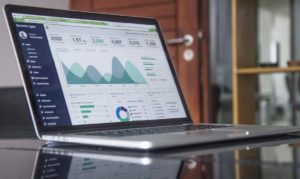Contrary to popular belief, success in property management is not pegged on the number of properties you manage. It’s actually dependent on your overall strategy and business efficiency. Portfolio size is only an indicator of success- not a determining factor.
A good and effectual strategy keeps both your management team and tenants happy, increases retention rates, consequently getting you noticed by potential business prospects. Of course your firm’s efficacy levels largely depend on the precise tools you leverage. And that’s where property management software comes in. As a technology that is progressively revolutionizing the entire real estate industry, property management software is indeed one of the most, if not the most, critical tool in property management in the 21st century. To help you make sense of the buzz surrounding it, I’ll walk you through how you can choose good software, plus the subsequent effects it would have in your overall business.
How  To Choose Property Management Software
To Choose Property Management Software
- Assess Your Needs: Many overlook this step and end up choosing software that’s overkill for their needs, consequently wasting not only their resources, but also time. While going for software with great reviews is encouraged, what is good for one property management firm may not be necessarily ideal for another. That’s because ultimate efficacy of property management software largely depends on its alignment with your overall management strategy. So it only makes sense to comprehensively assess your business and determine its specific technological needs, before jumping into the software assessment train.
- Go For Affordable, Not Cheap: Saving a couple of bucks each month on software subscription wouldn’t hurt, right? Wrong! Contrastingly, this could actually hurt your business, as opposed to saving it. Property managers should instead go for affordable software- and that means finding a perfect balance between usability and cost. Affordable software should have all the right features, with superior functionality at an affordable cost. At the end of the day, this produces better returns than cheap (or probably free) software with inferior performance capabilities.
- Choose Handy Features: While some software features are dependent on your business model and management strategy, others are very critical for all property management firms. Therefore, in addition to evaluating software in terms of its usefulness to your firm, there are certain must-have features in your property management software, regardless of firm size. They include: a tenant portal, tenant screening, online application support, maintenance management and tracking, document management, report generation, payment tracking, credit card processing, accounting, plus multiple tenant support.
- Pick a Flexible and Customizable Software: Your overall business model, operation and growth should not be limited by your software’s capabilities. The software should rather be flexible enough to persistently adopt to a firm’s changing needs and structure. Using a static software would only limit your operations and structure according to your software’s capabilities. For instance, software that can only accommodate a limited number of tenants will consequently limit the corresponding number of properties a firm can manage. A dynamic and flexible software on the other hand, can be customized according to how your firm operates.
 Choosing a perfectly-tailored software is the first step to a more efficient business environment, which could ultimately translate to improved returns. It will help your business in the following ways:
Choosing a perfectly-tailored software is the first step to a more efficient business environment, which could ultimately translate to improved returns. It will help your business in the following ways:
Improved Data Security
Most businesses in the 21st century, especially property management firms, rely heavily on data. According to a Data Loss Statistics report by Boston Computing Network, 60% of companies that lose their core data typically shut down within 6 months of the disaster. Since property management firms extensively base their operations on tenant records, losing company files could prove to be extremely detrimental, and could result in huge losses or complete collapse.
A good property management software substantially reduced this risk through a computerized data management system that distributes and stores data in the cloud. Therefore, even in the event of a disaster like fire, moving on is as simple as logging into the system and proceeding with your operations virtually.
Real Time Information Access
Imagine perusing through thousands of files to retrieve just a single snippet of information, or shipping volumes of files to your lawyer’s office for advice on a dispute with a tenant. Of course that would not only be time consuming and hectic, but also cost your business a couple of bucks. According to a study conducted by PricewaterhouseCoopers, searching for a lost document will cost your business $122 on average. To make matters worse, you’ll typically have a 92.5% chance of finding the document, since 7.5% of them are lost completely.
Compare that to a cloud based system that not only provides, but also analyzes data in real time. Software like Property Matrix for instance, provides a search tool that crawls through the entire system to retrieve data in microseconds.
Reduced Operation Costs
Sure, we admit that free property management software may not be particularly suitable for a serious business seeking to improve and expand. Reliable software, of course, comes at a fee. But that doesn’t actually translate to a cost, considering short and long term cost-efficient software functionalities. In addition to reduced business risk, property management systems help businesses save money on employee wages and manpower. All things considered, a couple of dollars fee for software access subsequently correspondingly introduces hundreds, and probably even thousands of dollars in savings each month.
Streamlined Payment and Accounts Tracking
Handling and tracking rent payments are probably two of the most critical operations in property management. While it may seem like a very simple process in the beginning, it starts to get complicated as the portfolio grows and responsibilities increase. A firm has to always find a good balance between rent collected and money re-injected back into the businesses, to remain profitable and maintain a consistent flow of cash. And that requires a streamlined payment and accounts tracking system provided by property management software. A comprehensive system not only collects and processes rent, but also issues payments to contractors according to their invoices.
So far, with a wide range of features accessible right from the dashboard, property management software has indeed helped elevate small property management firms to efficiency levels and productivity levels of their larger counterparts. If you’re yet to adopt one, go ahead and take advantage of Property Matrix’s free trial. And if, on the other hand, you’re already leveraging one, you’re still invited to test it out just to get a feel of its features, before comparing them with your current service.




